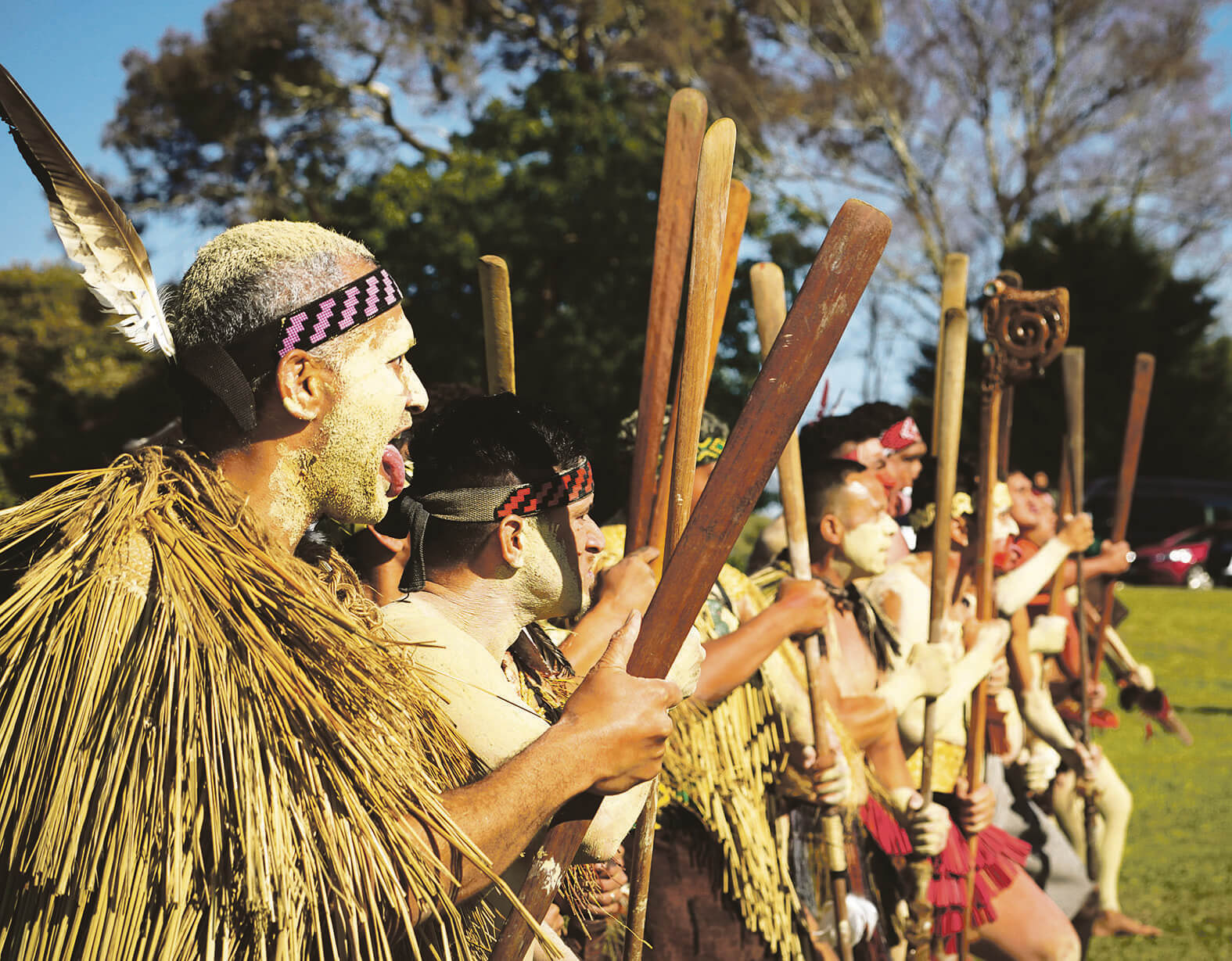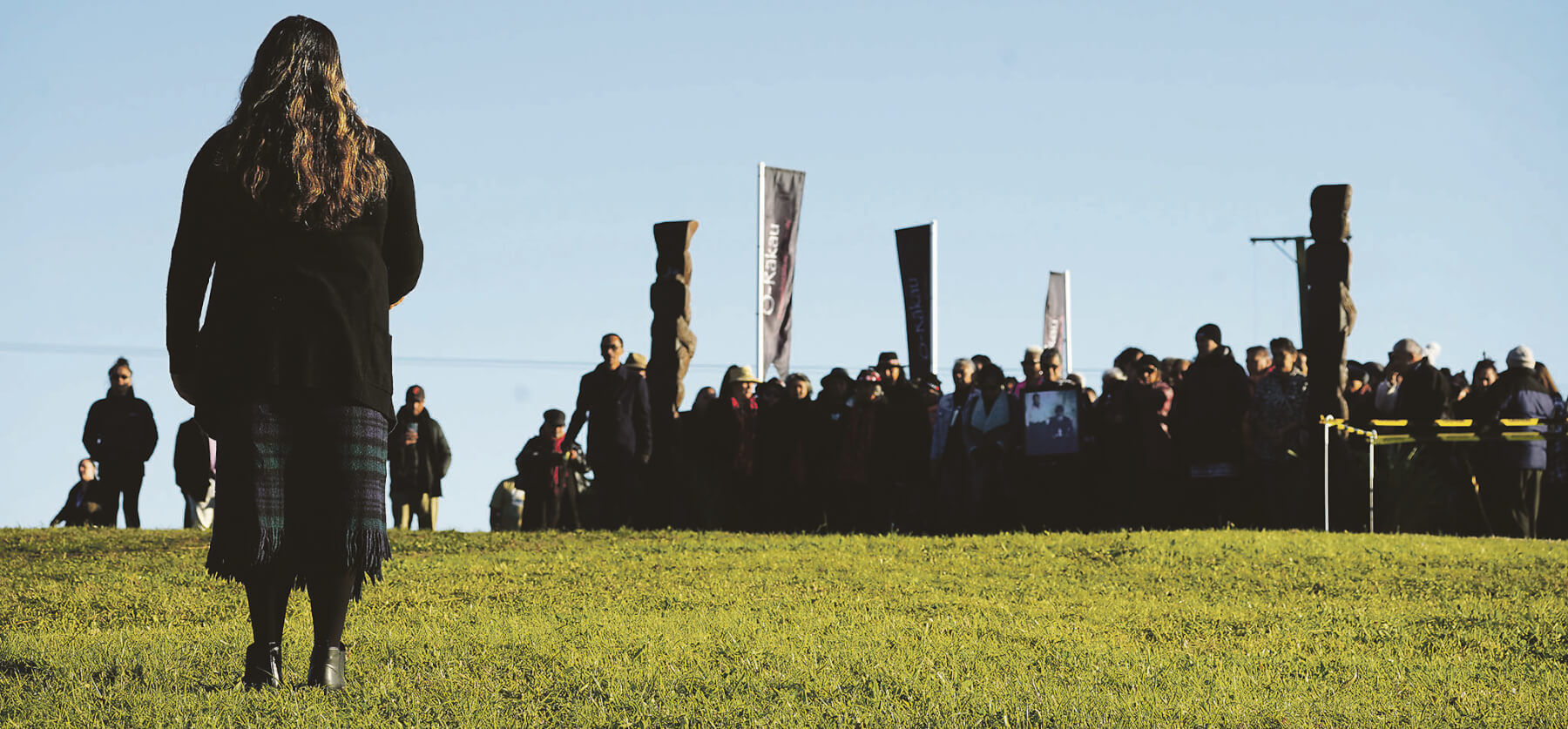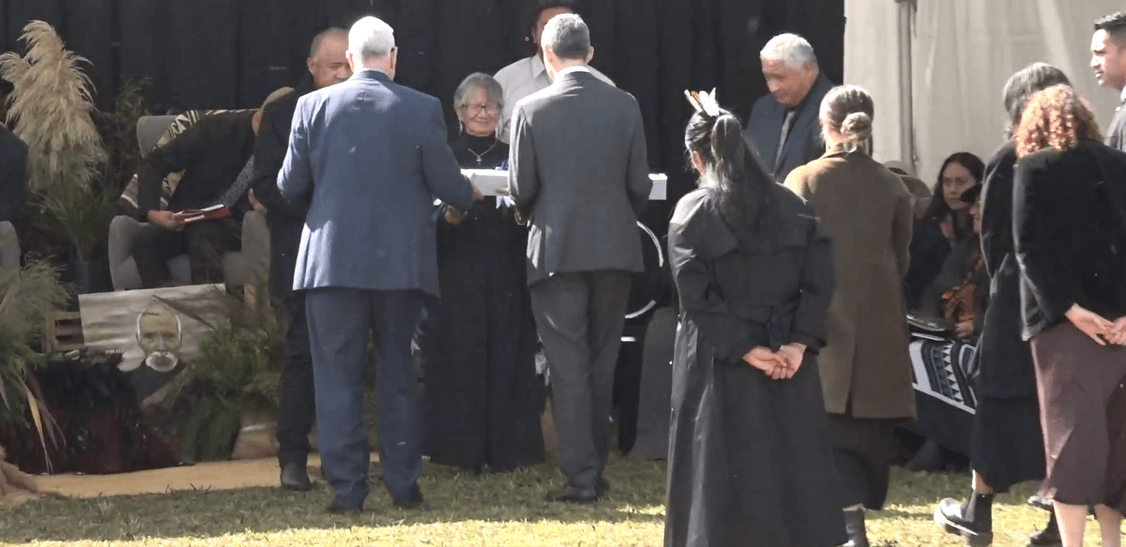More than 1000 people gathered to honour the 160th anniversary of O-Rākau, a battle that helped define the New Zealand wars.
The ceremony on Tuesday began with a 7am dawn service, flag raising and karakia, the proceedings lit by several burning fires.

The wero – challenge – commences. Photo: Te Nehenehnui
It was held at the O-Rākau battle site, 5km from Kihikihi.
Many of those present were mourning their tūpuna lost in the battle.
They spent the day alongside politicians including Government minister Tama Potaka, educator Makere Roa, historian Rovina Maniapoto and academics Tom Roa, Pou Temara and Vincent O’Malley, and Te Wānanga o Aotearoa leader and orator Paraone Gloyne, and Kaawhia Te Muraahi, the President of the O-Rākau Heritage Society, as well as Kīngitanga representatives.

It was an ealy morning welcome for whanau and manuwhiri. Photo: Te Nehenehenui
Church representatives included Archbishop David Moxon, accompanied by Pa Turi Hollis, Monsignor Jo Stock, Deacon Henare Waaka and Kaikarakia Adam Hope.
During several pōwhiri, hundreds of rangatahi tane greeted manuwhiri with a wero, as kaikaranga echoed across the battle site.
The movie “Ka Whawhai Tonu – Struggle Without End, the story of the Battle of Ōrākau” told for the first time from the point of view of Māori, in te reo Māori. Its trailer premiered mid morning.
Transmission Films made the in association with Te Tumu Whakaata Taonga, the New Zealand Film Commission.
The warriors at O-Rākau comprised the Kīngitanga tribes, Waikato-Maniapoto and Raukura, supported by kin and allies from Tūwharetoa, Tūhoe, as well as detachments from Ngāti Kahungunu Ki Te Wairoa, Ngāti Whare and others.
Many of their descendants had given their permission to share some of their stories in the film.
Tainui Waka groups (comprising of Waikato-Tainui, Te Nehenehenui and Raukawa Settlement Trust) worked collaboratively on behalf of their respective iwi to host the 160th.

The petition is received by Waimarama Anderson, Leah Bell, Tai Te Ariki Jones and Kiana Ormsby.








